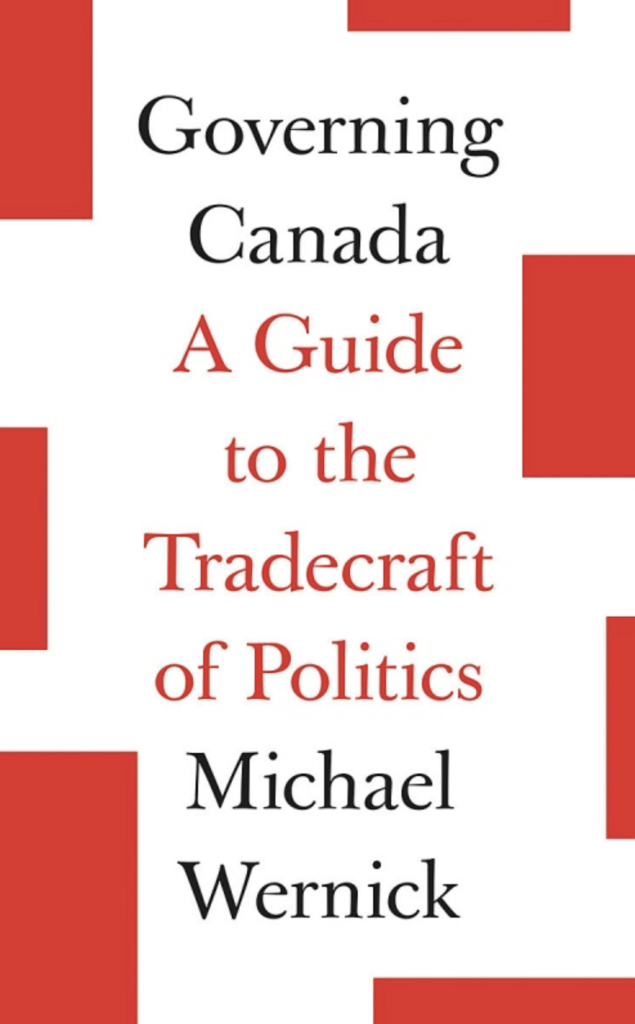An Owner’s Manual — not a Kiss and Tell
Governing Canada: A Guide to the Tradecraft of Policies
By Michael Wernick
UBC Press/October 2021
Reviewed by Paul Deegan
October 3, 2021
Those hoping that former Secretary to the Cabinet and Clerk of the Privy Council Michael Wernick will dish the dirt in his new book, Governing Canada: A Guide to the Tradecraft of Politics, will be deeply disappointed. However, those interested in the intersection of politics and the machinery of government will be fascinated by Wernick’s practical and insightful dissection of how day-to-day Ottawa really works.
From the outset, Wernick is careful to point out that his book is neither a manifesto for reform nor a defence of the status quo. He submits that “regardless of ideology or personality, there are some elements to governing that, approached mindfully, can be learnable skills.” His distillation of “how it works” is based on his bona fides — having served as clerk of the Privy Council under Justin Trudeau and deputy minister to four different ministers.
While his career was entirely on the public service side, Wernick clearly understands that politics is always present in the deliberations of the elected and that governments are responsive to the electorate. Fundamentally, he sees the role of government to deliver on its election promises and to signal the things that it will do if re-elected. He sees the art of governing as finding the right mix of politics and policy, with politics paving the way for public support of the policy.
Wernick devotes 160 pages of his 200-page book on providing advice to a prime minister, a minister, and a deputy minister. Interestingly, this former deputy minister devotes the least amount of ink to advising a deputy minister.
For a new prime minister, who had been in opposition leader, he submits they have a great deal to learn about managing Cabinet and caucus. For those who won the PM’s role while their party was in power, he suggests focusing on their own approach to the job. His next piece of advice, and this is very much applicable today, he suggests checking the tank for political capital.
While his career was entirely on the public service side, Wernick clearly understands that politics is always present in the deliberations of the elected and that governments are responsive to the electorate.
He notes the many hats that a prime minister wears: Member of Parliament, party leader, head of government, first minister of the federation, as well as the international role in the G7, at the UN, and so on. He also acknowledges the PM’s need to protect time for family, for exercise and relaxation, and for friends outside of politics.
He sees the clerk of the privy council and the chief of staff in the prime minister’s office as two parallel nervous systems for the PM and the government. Wernick believes there is a risk on becoming too dependent on these two and suggests having a second person to turn to in each of those offices at the centre of government.
Wernick, quite rightly, considers that the most important international relationship for any prime minister is with the president of the United States. Beyond the vital leader-to-leader relationship, he notes the role that ministers, senior officials, premiers, federal opposition leaders, and former prime ministers can play. He astutely notes the risk that the Americans will take Canada for granted or sideswipe us unintentionally. And he suggests that the prime minister look for opportunities to be helpful to the American president.
When it comes to working with the premiers of the 10 provinces and three territories, Wernick generally doesn’t see great value in meeting with them as a group. Rather, he recommends dealing with premiers one-on-one and away from the cameras. He notes that, in any given year, a few of the 13 will be up for re-election and ready to bash the federal government publicly.
Wernick warns that rulers always attract courtiers, eager to agree and to please. The longer you are in the power, the more courtiers you will attract. He notes the inverse relationship between the number of people in the room and the level of candour. He also submits that a prime minister who hangs on to the same closed circle or advisers and confidants will not be successful. He believes groupthink creates blind spots and poses risks. Ministers and caucus grumbling about the inner circle will eventually grumble about the prime minister. To avoid this, he suggests swapping out key players from time to time in cabinet shuffles.
Wernick, who resigned as Clerk of the Privy Council in 2019, does not tell war stories, nor betray confidences, nor attempt to settle old scores. Instead, he offers all of us a front row seat to politics and policy making and he performs an important public service in drafting what is essentially an owner’s manual to official Ottawa. It’s a good, digestible read, which I highly recommend to Ottawa insiders and armchair observers alike.
Contributing Writer Paul Deegan was a public affairs executive at BMO Financial Group and CN, and he served in the Clinton White House.

